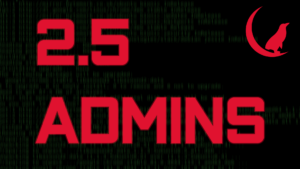
 2.5 Admins
2.5 Admins 2.5 Admins 216: Pa55w0rd%
Oct 10, 2024
NIST is changing the game with new, sensible password standards, abolishing absurd complexity rules. The podcast dives into why multi-core server CPUs can enhance performance and reliability in deployments. They also discuss the uncertain future of the '.io' domain amidst political shifts and offer insights on setting up Linux-based routers, focusing on tools like OpenWrt and mini PCs. Plus, they highlight reliable alternatives for budget-friendly access points. A blend of tech talk and practical advice awaits!
Chapters
Transcript
Episode notes

